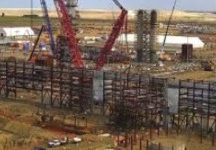
The recent provincial election in B.C. has added a new wrinkle to the development of an expanded Kinder Morgan pipeline to the west coast. Christie Clark’s Liberals fell short in their bid to hold power, now relegated to the Opposition benches in favour of an NDP-Green Party coalition. Though approval for the Kinder Morgan pipeline lies outside of provincial jurisdiction, this new political development casts some doubt on its completion.
With this in mind, our June survey revisited some questions we asked in 2011 about public attitudes regarding pipelines, and upgrading and refining of Alberta’s oilsands at home:
- Gaining more market access through pipelines is a provincial preoccupation in Alberta, however interestingly, in the public’s mind adding more upgrading and refining capacity in the province is at least equally (if not more) important
- A large majority (75%) of Albertans believe the Province should be doing more to encourage development of new upgrading and refinery capacity in Alberta
- This represents a small drop since 2011
- Despite recent controversies, three-quarters (73%) of Albertans endorse the financial arrangement which led to the construction of a new refinery in Sturgeon County (i.e. using long-term contracts of BRIK as a base to finance) vs. only 10% who disapprove
- Support for this mechanism has eroded slightly (5%) since we first asked the question in 2011, however opposition remains unchanged
- BRIK contracts are the most well-received means of government action to increase refining in Alberta, but not the only tool which a majority endorse
- Tax incentives, lease conditions and even differential royalties on exports enjoy support from significant majorities of Alberta voters
- A bare majority supports loan-guarantees
- Other mechanisms such as creation of a Crown Corp., restrictions on exports and operating subsidies receive mixed evaluations from Albertans
- Direct investment of provincial tax dollars into private sector projects is not an approach most Albertans would support
- Though still popular with many, mechanisms that would restrict oilsands development or make exporting bitumen more expensive or more difficult have dropped in support over the past six years
Click the link to view detailed findings and methodology: Public Views on Oilsands Refining and Pipelines July 2017
